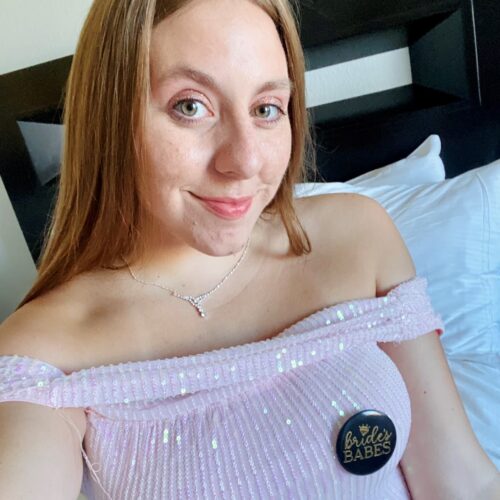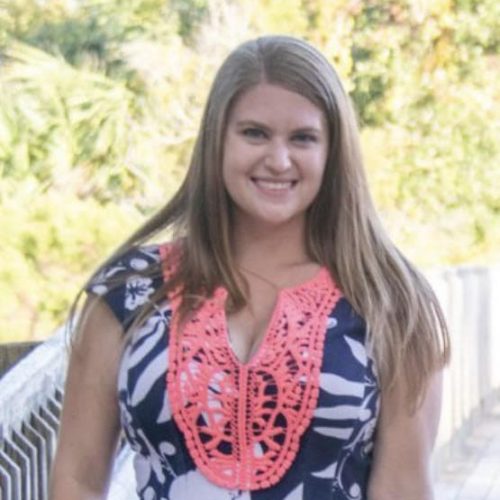
It was December 2003. I’d been living in the New York City area for fourteen months, pursuing an acting career—something I’d always dreamed of doing. I was cast in two plays, taking classes, and networking. It was exciting and I loved it. Although I loved it, I was ready to escape the rat race and head to southern Indiana to spend the Christmas holiday with my family.
This would be the first Christmas in my parents’ new home, and my father finally had the fireplace he’d always dreamed of. I’d envisioned sitting by a roaring fire, sipping cocoa—or wine—watching Christmas movies, listening to Christmas music, playing games, or just hanging out. Christmas is a really big deal in my family.
Five days before my December 20 departure, I had a doctor’s appointment to discuss the results of a urology test. However, another health change had been haunting me. A few months earlier, in September, bruises had started appearing on my legs. I was never prone to bruising so I chalked it up to getting older. After all, I was 37. However, it was getting harder to ignore because the bruises were popping up more frequently and they weren’t going away.
I’d first noticed the bruising and even mentioned it to my sister in late September. However, more recently the bruising had gotten increasingly worse—more prolonged and spanning a greater area of coverage. It looked as if I had been in a fight.
On December 14, I went online to research “excessive bruising” and was not happy with what I discovered. It could be caused by something as easily treatable as a vitamin deficiency. Blood clotting or poor clotting problems were listed as possibilities as well, but what first captured my attention was the serious ailments like leukemia and Non-Hodgkin lymphoma.
Breathlessness was listed as a symptom of leukemia. I had found myself out of breath often when walking up the stairs and through the subway. I rationalized this fatigue to being out of shape and leading a sedentary lifestyle, even though I walked everywhere in the city. I also carried huge bags packed with all the items needed for the day because once I left my apartment I was out until I returned from all my appointments, errands, or classes. One would expect to be out of breath carrying heavy bags and climbing stairs, but what was most disturbing to me was the length of time it took to stabilize my breathing after any exertion.
Still, self-diagnosing was not wise. Since I already had a doctor’s appointment scheduled for the next day, I decided to address the bruising at that time. I was well aware of how serious this situation could be although I was still convinced it was nothing—most likely a vitamin deficiency that could easily be remedied, because I hadn’t been eating very well. Furthermore, cancer was just not a word that could ever be associated with me. How wrong I was.
“I’m not a hypochondriac, but I am definitely more aware of and concerned about anything suspicious and now take action sooner rather than later.”
On December 17, after returning from shooting an infomercial, I discovered multiple messages on my answering machine from my doctor urging me to call her. Once I reached her, she told me that the results of my CBC (complete blood count) were very bad. The counts for red blood cells, white blood cells, and hemoglobin were all low; and my platelet count had dropped to fifteen thousand. (A normal platelet count is 150,000-450,000 platelets per microliter of blood.) She instructed me to go to the emergency room immediately. Stunned, I hung up the phone—the emergency room? She was afraid that with my extremely low platelet level I might start bleeding spontaneously.
The next day, December 18, in a hospital room, a hematologist broke the news: You have acute lymphocytic leukemia. I was hospitalized for ten days and chemotherapy began at 8:00 pm on Christmas Eve. This was definitely not the holiday I’d imagined.
I endured four rounds of high-dose chemotherapy, staying in the hospital each time for four to five days. To give me a better chance of the cancer not coming back, my doctors recommended that I get a bone marrow transplant (BMT). My bone marrow transplant took place on June 1, 2004. My sister Barbara, pregnant with her second child, was my bone marrow donor. She was a perfect match. Her story is, in my opinion, the more amazing and interesting part of my cancer tale. She is definitely one of my heroes.
It has been over eleven years since diagnosis and ten after my BMT. I often think about early detection and how perhaps I should’ve seen my doctor that September when the bruising seemed odd yet unthreatening. However, once mid-November arrived, I should’ve seen my doctor right away. It wasn’t until almost three weeks after Thanksgiving that I finally took action.
I often wonder that if I’d not had a doctor’s appointment already scheduled, would I have waited until after the holidays to address it? And by that time, with my blood counts and platelet level as low as they were on December 15, would I have even have been alive at Christmas? These days, I am much more vigilant about my body and health regarding anything that doesn’t look or feel right. I’m not a hypochondriac, but I am definitely more aware of and concerned about anything suspicious and now take action sooner rather than later. Life is precious. I must protect it, especially now that I am an aunt to one young woman, two girls, and three boys.
Symptoms
- unexplained bruising all over body
- shortness of breath
- fatigue






